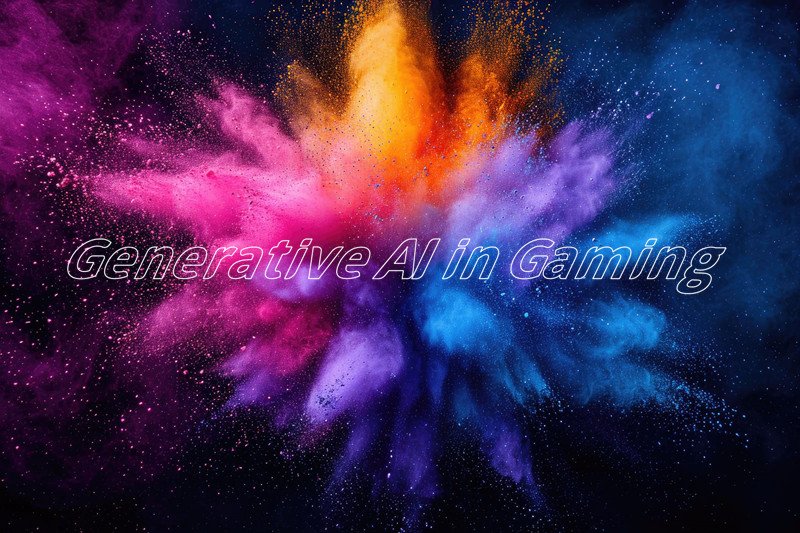Last updated on September 17th, 2024 at 05:55 pm
Recently, AI technology has been evolving rapidly, with increasing academic research and the continuous release of various practical applications, including software and hardware support. Generative AI has played a significant role in fields such as education and training, law, and graphic design. But what about the world’s largest virtual entertainment sector—the gaming industry? Can generative AI change the future of gaming?

At March’s Game Developers Conference in San Francisco, Nvidia showcased demos of its generative AI-powered technologies. These technologies harness generative AI in various ways, such as dynamically creating dialogue and responses for nonplayer characters and modernizing graphics in old games. Nvidia’s experiments explore how generative AI might enhance future gaming experiences.
NPC Chat: Guided by Writers and Developers
Nvidia stated that many workers might worry about AI intervening in game NPC dialogue and its impact on “labor” aspects, questioning whether generative AI might lead to editors losing their jobs. They clarified that writers still have to create entire backstories for the generated dialogue to draw from. Developers would have the option to install guardrails for how NPCs act.
Testing Generative Dialogue Features
In Nvidia’s demo space, testers tried out the generative dialogue feature. They felt it’s one way to further immerse players into a game’s world, but it does require a level of effort that some gamers may not want to spend on their relaxing pastime. Process aside, the game did generate cleverly apt responses to what they said. It almost felt like the characters were listening.
Ubisoft Studies Emotion to Create “Real Characters”
In NPC emotion research, Ubisoft worked with InWorld’s AI models and used Nvidia’s ACE tech to match lip movements to generate audio for the demo. It was the game publisher’s research that added more emotion to NPCs.
Nvidia’s RTX Remix: Modernizing Classic Games
Another demo test, Nvidia’s RTX Remix, remasters classic games using ray tracing and DLSS technology, enhancing textures and adding light depth, making old games look significantly more modern and detailed.
Balancing Immersion and Distraction
Testers believe that while generative AI in the future may allow players to deeply engage with any NPC, it risks turning NPCs into distractions that obscure the main storyline. This lack of control over information delivery can undermine carefully crafted moments and cinematic experiences, as seen in beloved games like The Last of Us and Uncharted.
So, applying generative AI in games needs to be carefully planned based on the game’s type and unique features. It’s important not to “miss the forest for the trees” or “put the cart before the horse” by letting core narratives take a backseat to generative AI. The main goal of any game is to enhance user enjoyment. If players don’t experience the fun core mechanics of the game and instead get distracted by NPC interactions, ruining their expected enjoyment, then the AI implementation has failed.
Key Challenges and Controversies
Integrating AI into gaming comes with key challenges and controversies, including finding the balance between providing helpful assistance and preserving the gaming challenge, In “Thinking, Fast and Slow,” Daniel Kahneman introduces two thinking systems: System 1 and System 2. System 1 is fast, intuitive, and unconscious, whereas System 2 is slow, rational, and conscious. The human brain tends to favor using System 1 because it consumes fewer cognitive resources. Complex calculations and strategic problems require engaging System 2, which consumes more energy and effort; thus, humans instinctively avoid using it, especially in recreational activities. If AI provides detailed tactical analysis and optimal strategies in games, players may rely more on System 1 to quickly accept AI-provided answers rather than using System 2 to deeply think through and devise strategies.
Author’s Perspective:
The rise of AI can be seen as a technological revolution. With the advent of the AI era, game developers are dedicated to continuously enhancing players’ deep-level experience. The application of AI in games holds significant potential for improving immersive experiences, such as enhancing image realism, creating grand scenes, and providing dynamic and personalized assistance. Considering the core gameplay mechanics, how to better integrate the practical applications of AI is something that many developers will need to contemplate in the future.



